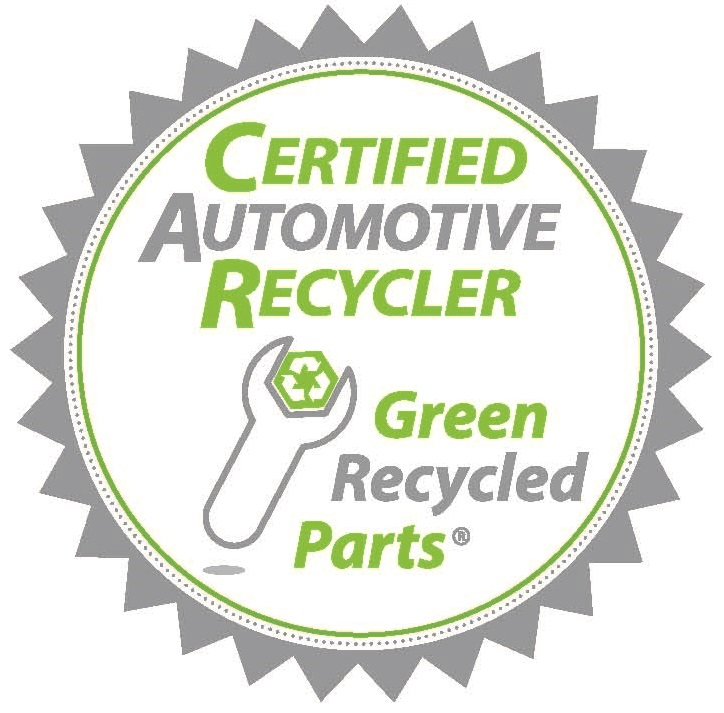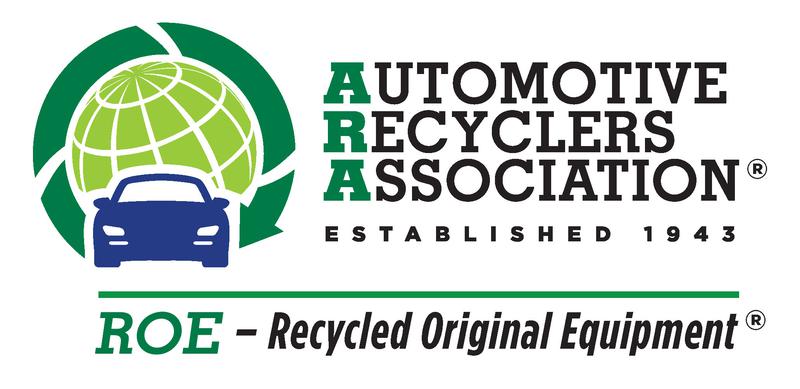MICHIGAN AUTO RECYCLERS - Storm Water Compliance WEBINAR
Event Date April 30, 2024 1:00 PM (1 Hour)
Ensure compliance with Michigan Storm Water regulatory requirements.
Various industries across Michigan, including many automotive recycling and salvage yards, are required to meet industrial storm water regulations for their facilities and understanding these regulations can be a daunting task. This presentation will provide an overview of the regulations as well as criteria that salvage yards need to consider when determining if industrial storm water permit regulations apply to them and how to meet program requirements.
Ensure compliance with Michigan Storm Water regulatory requirements.
Certified Auto Recyclers
Many professional automotive recyclers use a certification program to attain and maintain compliance with environmental, safety and transportation rules applicable to salvage facilities. The Automotive Recyclers Association (ARA) Certified Auto Recyclers (CAR) program sets a standard of excellence as the path to compliance.
The Michigan Certified Automotive Recycler (MICAR) program sponsored by Automotive Recyclers of Michigan (ARM) certifies that participating automotive recycling facilities meet specified general business, environmental, safety, licensing, and regulatory standards. MICAR has been approved and accredited by the Automotive Recyclers Association (ARA). MICAR certified facilities who are also members of ARA are considered to be participating members of ARA’s CAR program and are eligible to participate in ARA’s Gold Seal Program which focuses on excellent customer service and satisfaction, quality parts, and professional business practices.
Regulatory Agency
The Michigan Department of Environment, Great Lakes, and Energy's (EGLE) promotes wise management of Michigan's air, land, and water resources to support a sustainable environment, healthy communities, and vibrant economy. https://www.michigan.gov/egle/
Michigan DEQ offers small business assistance through the Environmental Assistance Center.
Expertise is offered in the major regulatory programs including: Air Quality, Geological Survey, Land and Water Management, Remediation and Redevelopment, Waste and Hazardous Materials, and Water.
The EAC has been formally recognized for their outstanding service to EGLE and to the people of the State of Michigan. Adam, Benita, Joli, Nate, and Veronica look forward to helping you with your environmental questions or concerns. They handle between 13,000 and 45,000 inquiries per year, and help with topics related to air, land, waste and water.
Give them a call 800-662-9278 or send an e-mail to EGLE-Assist@Michigan.gov.
The Environmental Protection Agency (EPA) Region 5 serves Illinois, Indiana, Michigan, Minnesota, Ohio, Wisconsin and 35 Tribes from headquarters in Chicago, IL.
US EPA Region 5
Ralph Metcalfe Federal Building
77 West Jackson Blvd.
Chicago, IL 60604
312-353-2000
EPA in Michigan https://www.epa.gov/mi
Stormwater Regulations
As a result of the federal regulations governing storm water discharges, the State of Michigan began issuing National Pollutant Discharge Elimination System (NPDES) permit coverage for storm water discharges associate with industrial activity in 1994.
Michigan’s industrial storm water permit authorization requires facilities to have an industrial storm water certified operator who has supervision over the storm water treatment and control measures at the facility. In addition, the facility must develop a Storm Water Pollution Prevention Plan (SWPPP) which describes nonstructural and structural controls implemented onsite and eliminate any unauthorized non-storm water discharges.
Spill Reporting
call the National Response Center at 1-800-424-8802.
National Response Center
If the hazardous condition involves the release of an EPA regulated material or an oil as defined by the EPA, the release may also need to be reported to the National Response Center at (800) 424-8802. Federal Reporting is required within 15 minutes of event occurrence or discovery.
The National Response Center (NRC) is a part of the federally established National Response System and staffed 24 hours a day by the U.S. Coast Guard. It is the designated federal point of contact for reporting all oil, chemical, radiological, biological and etiological discharges into the environment, anywhere in the United States and its territories.
Resources
The Environmental Assistance Center (EAC) is the one-stop shop for all of your environmental regulatory compliance needs. Whether it's direct one-on-one telephone assistance, producing training events, or developing plain English publications, staff from the major environmental protection programs stand ready to provide timely and accurate information and assistance on a wide array of environmental topics.
The EAC also serves as a single point of entry into all DEQ environmental programs. By calling the EAC at 800-662-9278 number from 8:00 a.m. to 4:30 p.m. Monday through Friday, business, industry, local units of government, and the general public can receive direct one-on-one assistance or referral to a network of technical staff within the DEQ. Give them a call 800-662-9278 or send
an e-mail to EGLE-Assist@Michigan.gov.
Michigan DEQ offers small business assistance through the Environmental Assistance Center.
Expertise is offered in the major regulatory programs including: Air Quality, Geological Survey, Land and Water Management, Remediation and Redevelopment, Waste and Hazardous Materials, and Water.
National Small Business Environmental Assistance Program
The 1990 Clean Air Act Amendments required states to develop programs to help small businesses comply with air quality regulations through a small business environmental assistance providers' programs (SBEAP). Many state technical assistance programs have expanded their air quality focus to provide technical assistance in other environmental areas.
Services provided by these organizations for small businesses include multi-media environmental compliance and pollution prevention (P2). P2 services help businesses reduce emissions at the source, often reducing regulatory burden and sometimes saving money.
To access these free, often confidential services and see which ones your state offers, locate your state program at https://nationalsbeap.org/states
Pollution Prevention Resource Exchange (P2Rx™) http://www.p2rx.org/
P2Rx is a national partnership of regional pollution prevention information centers funded in part through grants from EPA. We build networks, deliver P2 information, and measure P2 program results.
The Great Lakes Regional Pollution Prevention Roundtable (GLRPPR) serves the Great Lakes region of the United States (Illinois, Indiana, Michigan, Minnesota, New York, Ohio, Pennsylvania, and Wisconsin) and Canada (Ontario).
GLRPPR projects include:
A series of guides developed for small business is available at the Portal to resources developed by the GLRPPR including the Pollution Prevention 101 and the Green Business Guide.
The following fact sheets are designed to assist automotive recyclers with operating their businesses and managing their wastes in compliance with the environmental laws in their state. Select from the list below.
Congratulations CAR STAR Award Winner 2012!
CAR Certification standard of excellence highest achievement.







